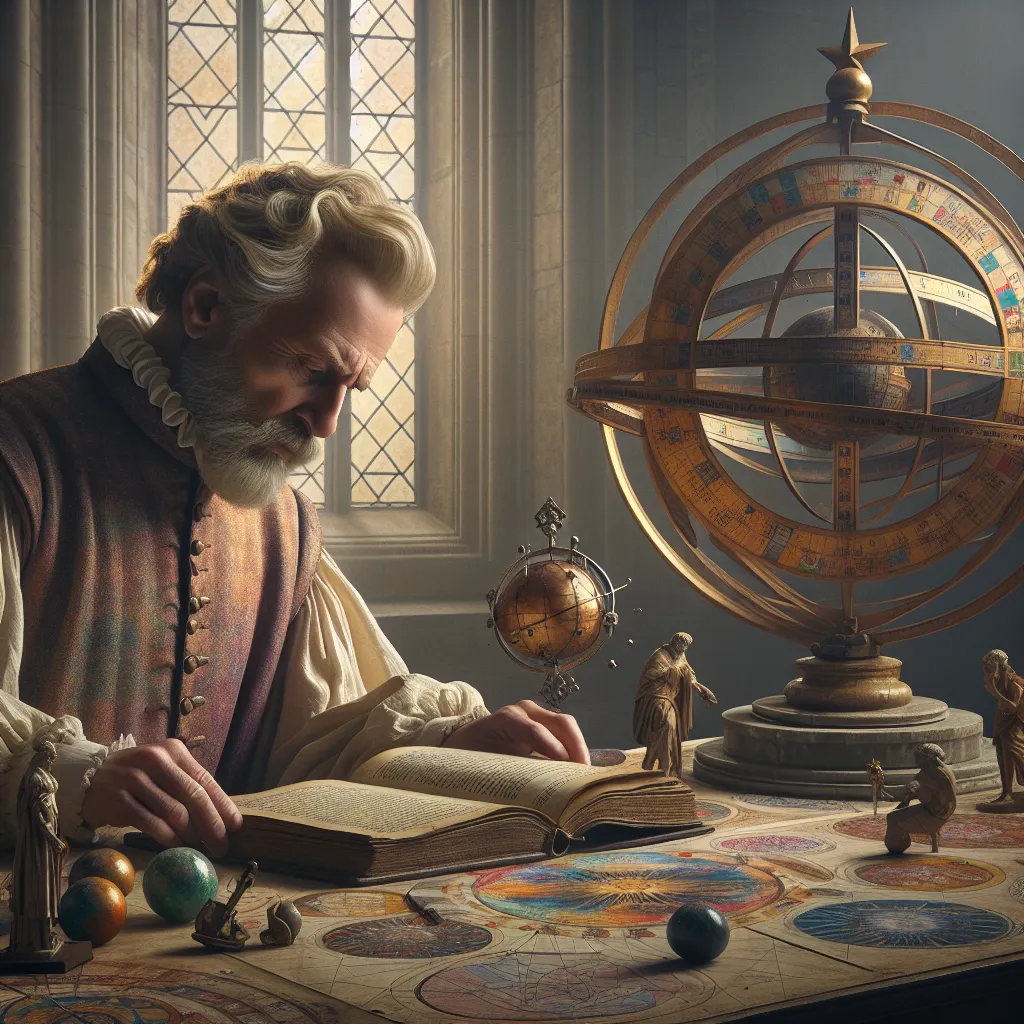
- Published on
- Authors

- Name
- You
The Controversies and Criticisms of John Dees Work: A Critical Perspective
John Dee, the 16th-century polymath, remains one of history's most enigmatic figures. While some hail him as an unparalleled genius who bridged the gap between science and mysticism, others criticize his work as dangerously flirtatious with the occult. This article aims to provide a balanced assessment of Dees achievements and legacy, merging insights from both advanced science and mystical wisdom.
Introduction
John Dees life spanned a unique era in history — the Renaissance. This period witnessed significant strides in both scientific inquiry and mystical exploration. Dees contributions to fields such as mathematics, geography, and navigational development were as influential as his forays into alchemy, astrology, and angelic communication.
Table of Contents
- Early Life and Intellectual Pursuits
- Scientific Contributions
- Mystical Explorations
- Controversies and Criticisms
- Legacy: A Balanced Assessment
Early Life and Intellectual Pursuits
John Dee was born on July 13, 1527, in London, England. His education at St. John's College, Cambridge, laid the foundation for his multifaceted career. His prodigious intellect soon caught the attention of the English court, where he served as an advisor to Queen Elizabeth I.
Scientific Contributions
Dees scientific achievements were nothing short of extraordinary. He was instrumental in:
| Field | Key Contribution |
|---|---|
| Mathematics | Introduced the concept of imaginary numbers |
| Navigation | Advised on the design of early navigational aids |
| Astronomy | Advocated for the adoption of the Copernican model |
| Geography | Played a role in the creation of early English maps |
These contributions laid the groundwork for subsequent discoveries during the Age of Exploration.
Mystical Explorations
Dees fascination with the mystical was equally profound. He conducted extensive research in:
| Field | Key Practices |
|---|---|
| Alchemy | Sought the Philosophers Stone and Elixir of Life |
| Astrology | Created elaborate horoscopes for royalty |
| Angelic Communication | Through scrying and Enochian language |
His collaboration with Edward Kelley in angelic summoning sessions remains one of the most controversial aspects of his life.
Controversies and Criticisms
Dees work, particularly in mystical domains, attracted significant scrutiny. Several key criticisms include:
| Criticism | Description |
|---|---|
| Occult Practices | Accused of engaging in demonic rituals |
| Scientific Rigor | Some claim his scientific methods lacked robustness |
| Influence on Politics | His guidance on political decisions was often contentious |
Despite these criticisms, it is essential to consider the context of the times. Renaissance scholars frequently traversed blurred lines between science and mysticism, striving for a comprehensive understanding of the universe.
Legacy: A Balanced Assessment
John Dees legacy is a tapestry woven with threads of both triumph and controversy. His scientific contributions offer invaluable advancements that continue to influence modern science. Conversely, his mystical explorations, while controversial, highlight the human pursuit of understanding beyond the tangible.
Conclusion
John Dees life and work serve as a testament to the duality of human endeavor. By exploring the realms of both advanced science and mystical wisdom, Dee laid the foundation for future generations to question, explore, and ultimately expand the boundaries of knowledge.
Understanding Dee through a balanced lens allows us to appreciate the complexity of his achievements and the enduring influence of his legacy. As we continue to evolve in our scientific and mystical quests, John Dees story remains a poignant reminder of the intricate dance between innovation and tradition.
Give us your thoughts on John Dees legacy. Are his controversies justified, or does his work transcend the criticisms? Share your perspectives below!
